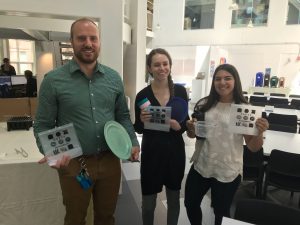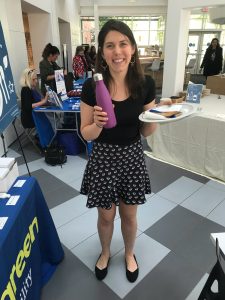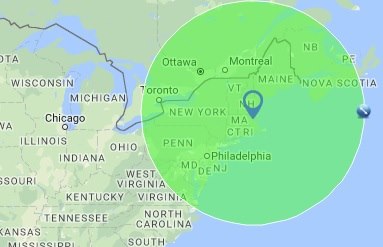 Friday was a busy day at the SMFA, with the last day of review boards, the annual Sidewalk Sale, and the President’s lunch. Every year, the Tufts community celebrates the end of a busy school year at each campus. Tufts Catering provided a delicious picnic lunch, including berries, pound cake, and chocolate sauce for dessert.
Friday was a busy day at the SMFA, with the last day of review boards, the annual Sidewalk Sale, and the President’s lunch. Every year, the Tufts community celebrates the end of a busy school year at each campus. Tufts Catering provided a delicious picnic lunch, including berries, pound cake, and chocolate sauce for dessert.  Anthony Monaco joined staff and students for the zero-waste event, where only recyclable and compostable plates, napkins, utensils, and cups are offered to keep material out of the landfill. Although recycling and composting eliminate waste, reusable options are even better!
Anthony Monaco joined staff and students for the zero-waste event, where only recyclable and compostable plates, napkins, utensils, and cups are offered to keep material out of the landfill. Although recycling and composting eliminate waste, reusable options are even better!  At this first ever President’s lunch held at SMFA, fifteen people brought their own place settings. Those who arrived with plate, cup, and utensils in hand won a Tufts Sustainability sandwich bag and a chance to win a lunch box. Sporks, Tupperwares, and cloth napkins are convenient to bring to work and school and using them is an easy way to reduce waste.
At this first ever President’s lunch held at SMFA, fifteen people brought their own place settings. Those who arrived with plate, cup, and utensils in hand won a Tufts Sustainability sandwich bag and a chance to win a lunch box. Sporks, Tupperwares, and cloth napkins are convenient to bring to work and school and using them is an easy way to reduce waste.  We hope to see everyone at next year’s picnic!
We hope to see everyone at next year’s picnic!
Check out our Facebook album for more photos of the event:
https://www.facebook.com/pg/greentufts/photos/?tab=album&album_id=1851786801507218



Find Us On Social Media!